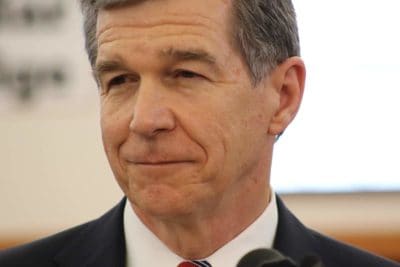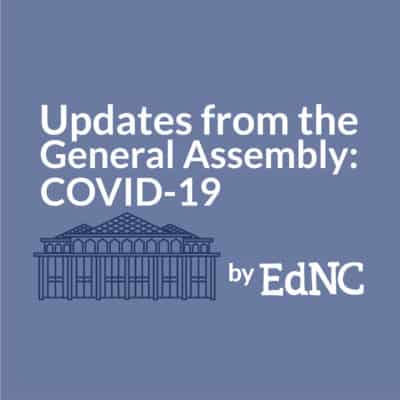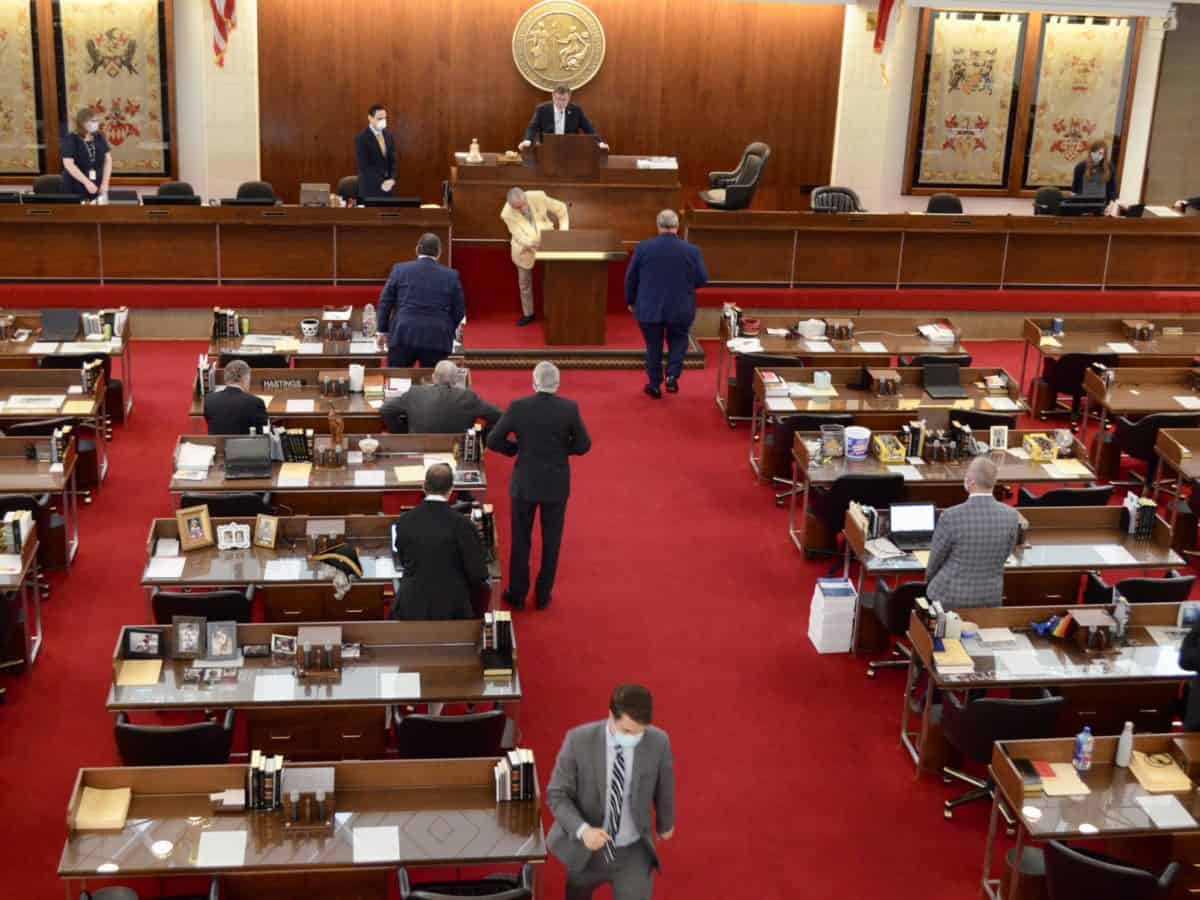

The 2020 short session of the General Assembly launched today, and the focus both of the process and content was COVID-19.
The full Senate met briefly and adjourned, but the House met and quickly voted to approve changes that would make it safer for legislators as they conduct their business. This includes extending voting times and allowing members to come in and out to take votes on items so as to limit the number of lawmakers in the room. And that is exactly what they did when voting on the rule changes.
Some lawmakers wore protective masks, while others didn’t, and the House was mostly empty during the floor session. Though one member, Rep. Michael Speciale, R-Craven, showed up in costume.
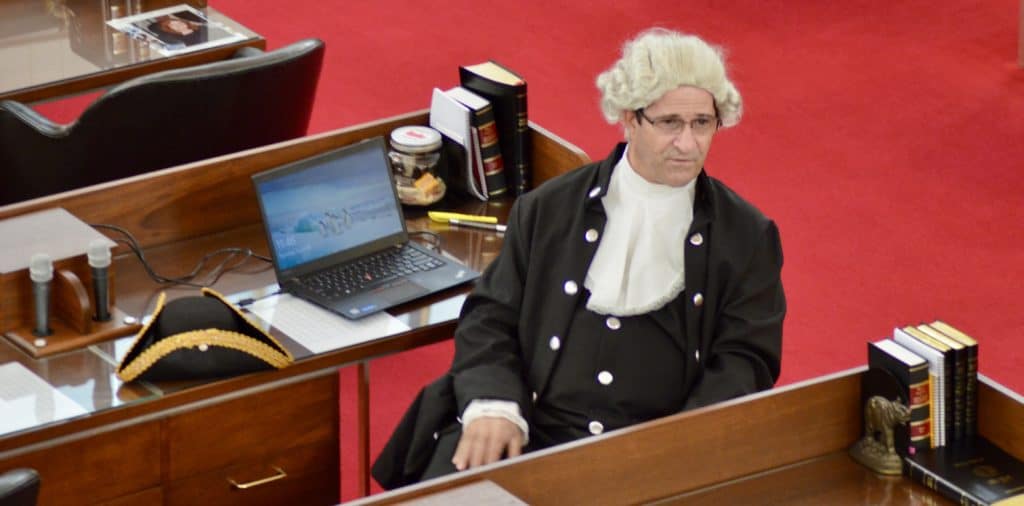

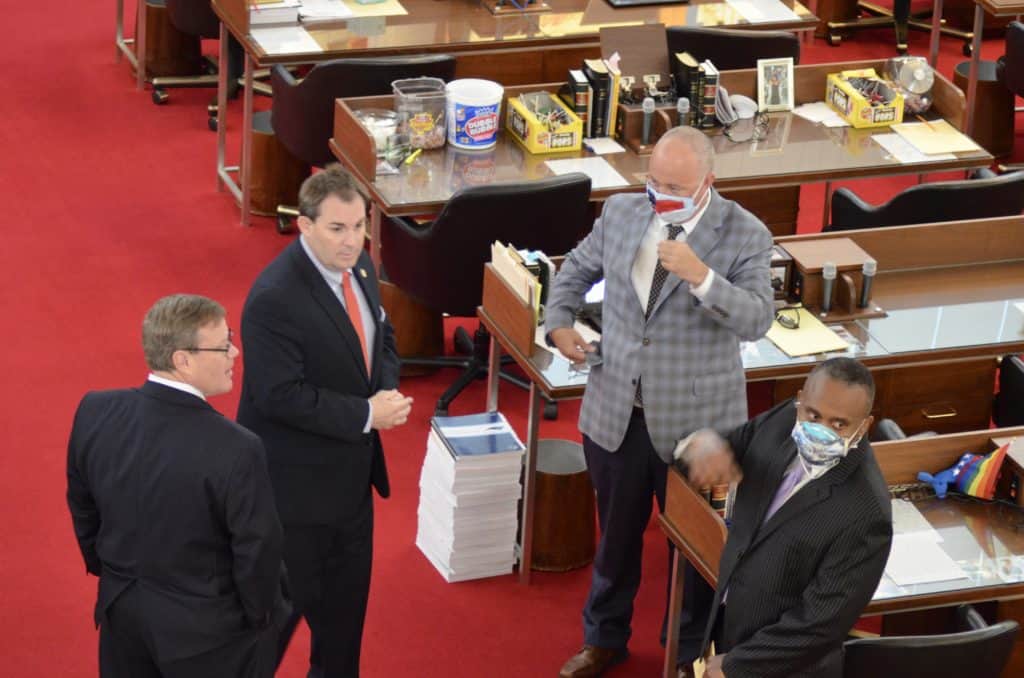

The main action today, however, wasn’t on the floor — but in the committee room. The House K-12 education committee met in the afternoon to take up the education omnibus bill that the education working group of the House Select Committee on COVID-19 passed out of its committee last week. Lawmakers are mostly staying in their offices and attending committee meetings virtually.
That bill contains a long list of legislative changes that need to be made given the fact that schools are not meeting in person. Included in the legislation is language that would waive requirements related to testing, school performance grades, the Innovative School District, summer reading camps, third-grade retention, educator preparation programs, teacher licensure, K-3 class size restrictions, and more.
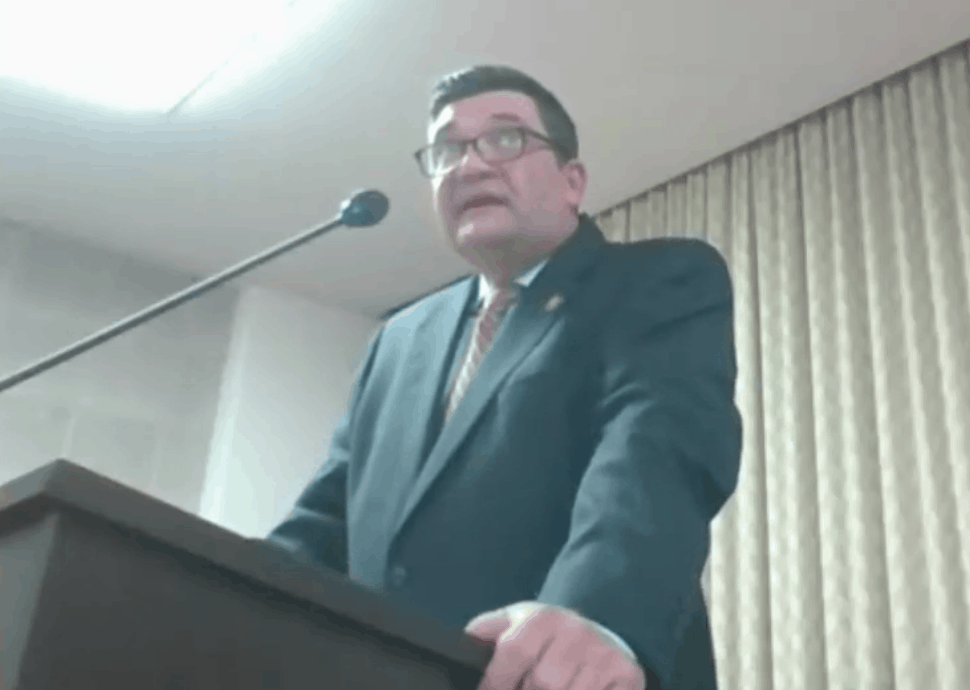

The bill passed out of the education committee with little discussion and will move next to the House rules committee.
Rep. Craig Horn, R-Union, a co-chair of the education committee as well as the education working group that developed the bill, praised the efforts of the working group and highlighted what a difficult job it was.
“We all felt like we were in the middle of a forest fire armed with a squirt gun,” he said, adding that this legislation is just a first step. “It’s not the end. It’s not the beginning of the end, but perhaps it’s the end of the beginning.”
Here is a summary of what’s in that bill:
And here is the actual bill:
So far, North Carolina has received more than $3.5 billion as part of the federal Coronavirus Aid, Relief, and Economic Security (CARES) Act. More than $2 billion was received earlier in April, and State Treasurer Dale Folwell announced today that another $1.5 billion had arrived on April 24. North Carolina is supposed to receive more than $4 billion from the federal government that can be spent by the General Assembly to deal with COVID-19.
Late in the day today, a Senate COVID-19 Relief Act bill was filed with 45 of the 50 Senators in the General Assembly signing on as sponsors. The bill includes appropriations as well as similar education waivers as seen in the House education omnibus bill. However, the Senate bill does not include a delay in K-3 class size restrictions as the House plan does.
The Senate bill would allocate:
- $25 million to the community college system office to be given to community colleges for online learning capacity, moving education online, facility sanitation before reopening, and more.
- $250,000 to the Department of Information Technology for funds to buy “mobile Wi-Fi gateway router devices for counties designated as development tier one or tier two areas.”
- $70 million to the Department of Public Instruction to be used for summer learning programs.
- $56 million to the Department of Public Instruction for school nutrition services.
- $9 million to the Department of Information Technology for the Growing Rural Economies with Access to Technology Fund, which gives grants that help increase the number of houses, businesses, or schools with broadband internet access.
In its request to the legislature, the Department of Public Instruction and State Board of Education asked for $380 million. Included in there was the $56 million for school nutrition and the $70 million for summer learning programs.
Absent from the Senate plan are items such as the $21.6 million DPI and the State Board wanted for supplemental pay for child nutrition and transportation employees, $21.2 million for connectivity, $91.5 million for digital devices, and $55 million for student reentry resources for student physical and mental health.
The Senate bill also includes language on districts developing remote instruction plans for the next school year. According to the legislation, the remote instruction plans must address a number of items, including that remote instruction be able to create the same kind of learning growth that non-remote instruction would.
Here is the bill.
The House has not yet released its education-related appropriations plan.
While General Assembly members took up business related to COVID-19 inside today, protesters from ReopenNC swarmed the outside of the building to demand that North Carolina be reopened for business.






ReOpenNC protesters outside the General Assembly. Alex Granados/EducationNC
COVID-19 related items are expected to take up the bulk of lawmakers’ time at the start of this session, though it’s possible that other matters may be taken up later.


